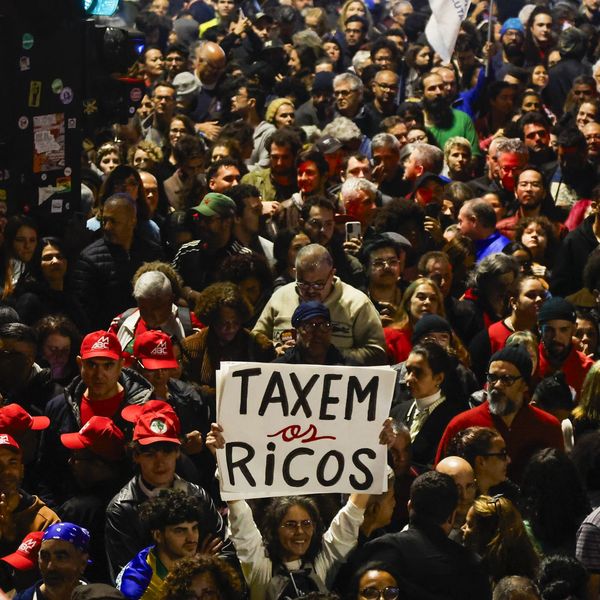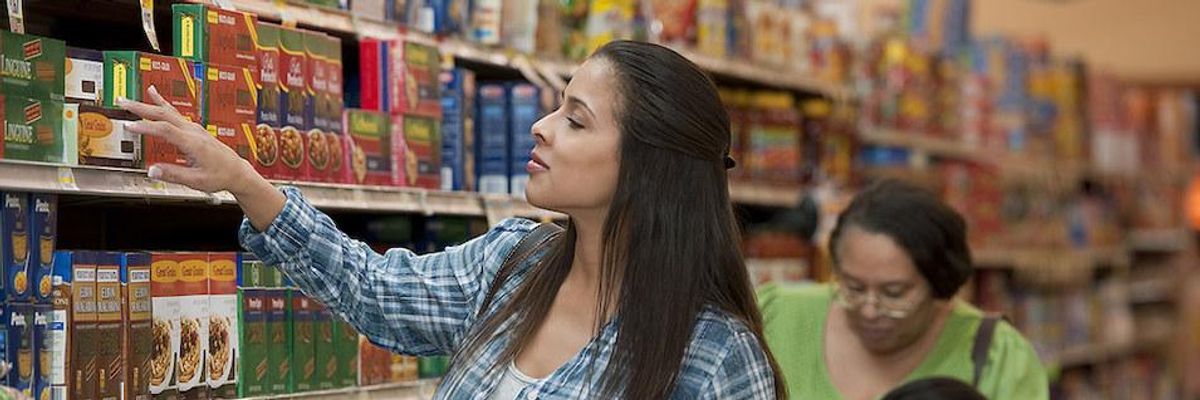A new report released Tuesday claims that the number of people in poverty in the U.S. is being undercounted by three million due to "inflation inequality," the process by which prices rise more quickly for those on the bottom end of the economy.
Groundwork Collaborative's "The Cost of Being Poor" (pdf) examines the way that inflation inequality is making it difficult to accurately calculate the number of people living in poverty.
The study relies on research by co-author and London School of Economics professor Xavier Jaravel, who found earlier in 2019 that "annual inflation rates for those at the bottom of the income distribution are substantially higher than for those at the top of the income distribution, effectively increasing income inequality."
Using this methodology as a starting point for the analysis, Jaravel and his co-authors analyzed income numbers and found the rate of poverty and inequality in the U.S. is likely far below prior measurements:
If we apply this steeper inflation to the poverty threshold, we see that millions more people would be classified as living in poverty. The divergence in household incomes that has been underway for decades is also notably larger than we thought.
Jaravel told The Atlantic that the price increases come from a lack of competition for production of low-income consumer goods. While higher-income consumers have more options, and thus more price competition, lower income Americans are stuck with fewer options.
According to The Atlantic:
The trend is small enough to go unnoticed year by year. For a given family, it might mean shelling out just pennies more on a grocery run or back-to-school shopping trip. But such changes compound over time, wedging apart the welfare of struggling households and flourishing ones. Rich families get competitive prices on organic groceries and athleisure and better-and-better electronics; poor families end up paying more for worse-quality alternatives.
"Of course, luxury products are more expensive," said Jaravel. "But inflation is about a different thing. It's not about the level. It's about the change."
The paper's authors argue that that inflation should be taken into account when measuring inequality, income, and poverty--but note that the President Donald Trump administration is doing the opposite, likely to lower government commitments to the poor.
As the study explains:
[R]ecent proposals by theTrump administration seek to use smaller inflation rates to adjust the poverty threshold. Doing so would result in a lower poverty line and lower official poverty rates over time. This would, in turn, mean that fewer and fewer low-income Americans would find themselves eligible for federal benefits, which have been shown to reduce the poverty level substantially.
The White House assault on government aid is based on an idea that the economy is strong for all Americans, said Groundwork Collaborative associate director of Policy and Research Sapna Mehta.
"Too many politicians and political pundits have been claiming that the economy is working well for everyone when in reality, it's only working for the wealthiest among us while working families are getting squeezed," said Mehta. "This paper confirms what we've been saying, that skyrocketing inequality has undermined the strength of our economy and finds that working families are literally paying the price for government inaction."
In a statement, report co-author Christopher Wimer said that inflation inequality is a "major problem" for low-income families across the country.
"I'm hoping that this new report will help policymakers understand the reality of the economy for low-income workers and will help them understand how inequality is impacting inflation and poverty rates in ways that need to be addressed," said Wimer.



